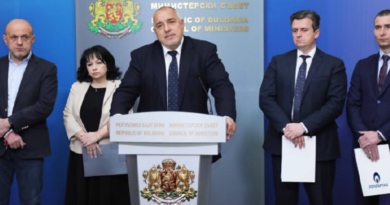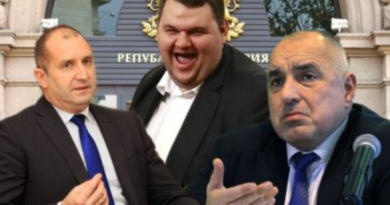Alternatives & Analyses: NeoMalthusian Thoughts on the Coronavirus Pandemic
In my fifty-three years I have only posted four comments on articles. Georgi Marinov’s Reflections on the Corornavirus shared with a wider audience in https://bivol.bg/coronavirus-thoughts.html prompted this rare and strange craving to voice an opinion. Unfortunately, Bivol doesn’t publish letters to the editor. The importance of the topic leaves me with no choice but to write a review.
Dr Marinov is clearly a well-educated young man and offers a good summary of the genetical and epidemiological aspects of the virus. His outline isconcise and useful to the reader. Regrettably, his forays into the societal and economic development implications of the pandemic seem naïve and misleading to the common reader. Thankfully, Dr Marinov’s article runs for 23 pages. Contemporary readers are rarely patient enough to devour and digest volumes on current topics and have most probably skipped the most radical ideas towards the end of the article.
Dr Marinov’s‘Reflections’ underline my support for an interdisciplinary debate on on the phenomenon of the outbreak and its implications on public policy, and, to a lesser extent, on its epidemiology or origins.
These articles analyses and comments are made possible thanks to your empathy and contributions, which are the only guarantors of independence and objectivity in our work. The Alternatives and Analysis team.
Dr Marinov views as “genocidal” the economists’ recent attempts to quantify the worth of human life. In fact, this is an established trend that originated sometime in the sixties and hasn’t prevented developed economies from spending on expensive treatments for rare conditions such as multiple sclerosis. It does, however, provide a rational grid for the distribution of limited resources which, ultimately, saves lives. Open hearth surgery is probably not the most productive allocation of the limited resources of a poor country that has difficulty financing the demands of its population for basic antibiotics.
Even more far-fetched are Dr Marinov’s ideas on debt jubilees, economies reduced to the basics of energy production, agriculture and water supply, and his contemporary Malthusian prophecies that GDP growth will inevitably run out with the inevitable depletion of resources. Such ideas are often entertained by scientistswho try to apply the methods of their trade to public policies. Common flaws include overly reliance on the trends in the graphs plotted on the basis of incomplete data series and the obsession with binary numbers – seeing the world in black and white.
As a student, our Advanced Financial Derivates class was open to PhDs in Mathematics, Engineering, Statistics, Genetics. As one might expect, they were much faster in solving the equations than the rest of us. When it came to interpretation of the outputs, outlining the limitations of the models, and recommendations for a particular course of action (or to refrain from action) the “quants” were suddenly falling behind.
Concededly, the impeding economic crisis cannot be averted. However, its catastrophic consequences can certainly be tempered with smart policies that take into account the vastly different impact of the virus on various strata within the population and their relative contributions to the economy. It may be true that some young women and men with no prior conditions will indeed succumb to the virus and that long-term immunity may be unattainable. Yet, the price that our societies are willing to pay for a collective resistance to the virus may still prove a lot more palatable if its spread could be limited to those better equipped to cope with it.
I urge Dr Marinov to seek support from his fellow economists – there is plenty of them at the School of Humanities and Sciences, at the Graduate School of Business, and even at the Hoover Institution. I would not be surprised, however, if Dr Marinov’s ideas were more readily embraced at Berkeley rather than under the Hoover Tower
VesselinDanev, MBA, Stanford Graduate School of Business
Thank you for your donnations via PayPal and bank transfers to IBAN BG58UBBS80021090022940
the Alternatives and Analyses NGO.




